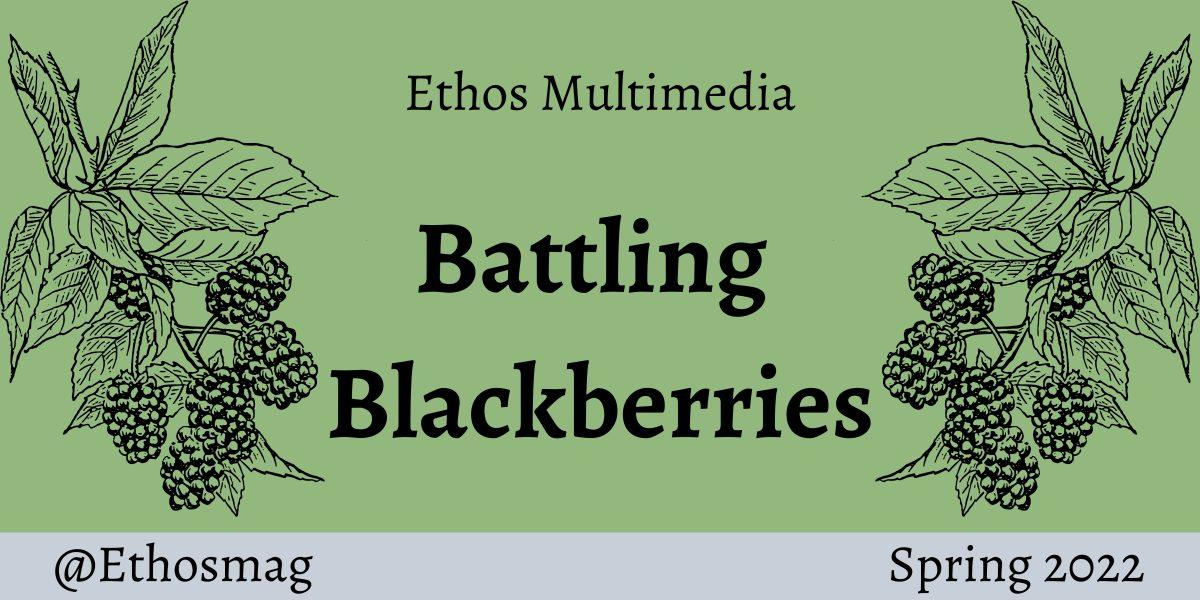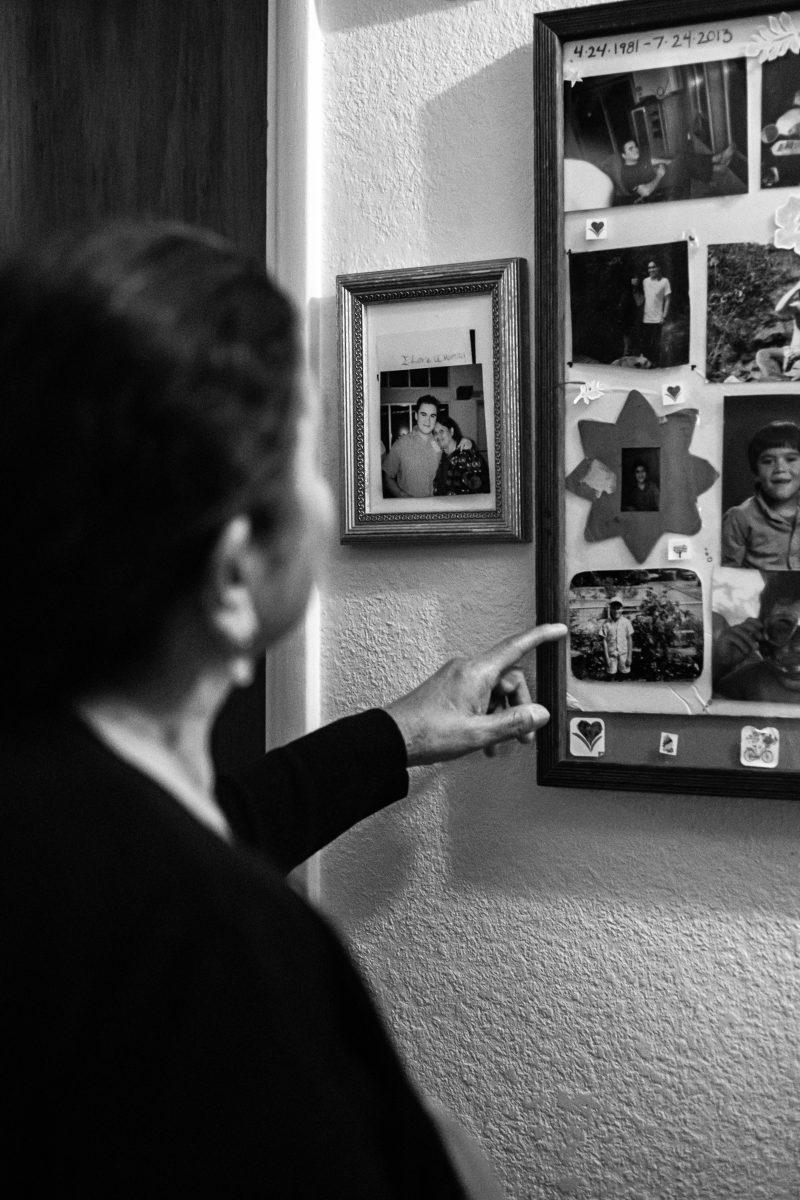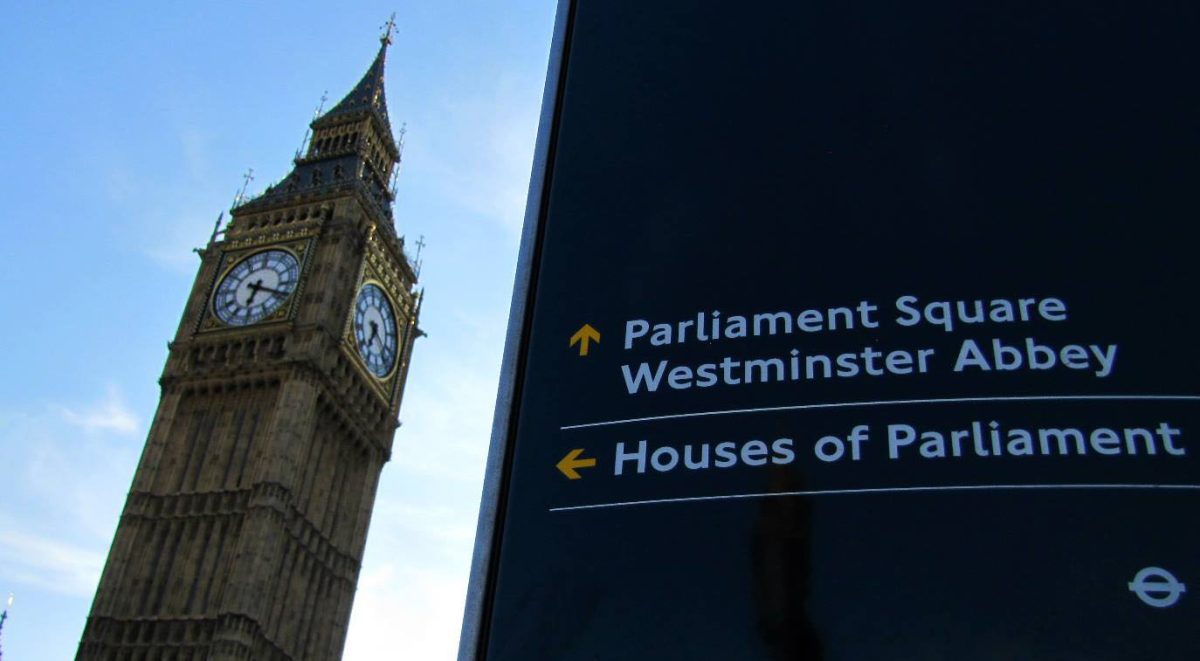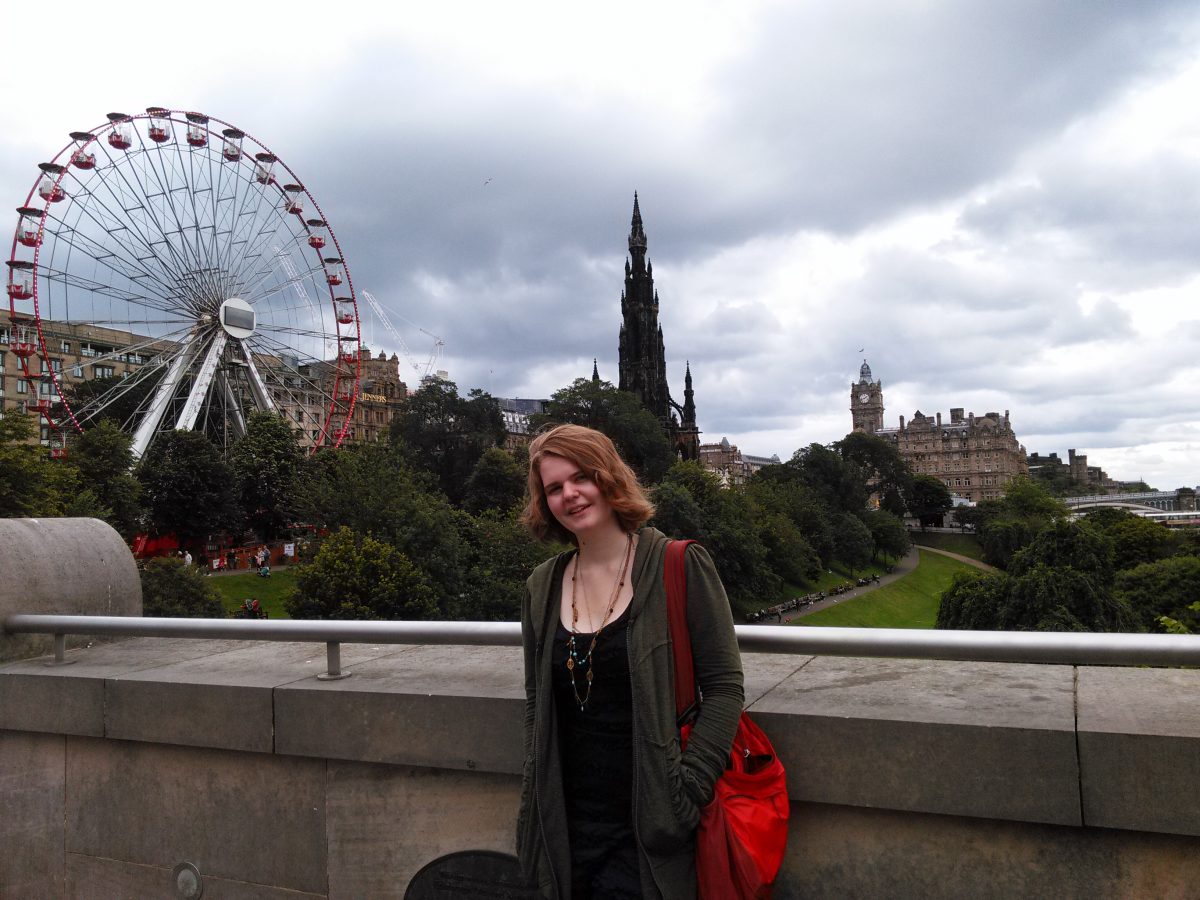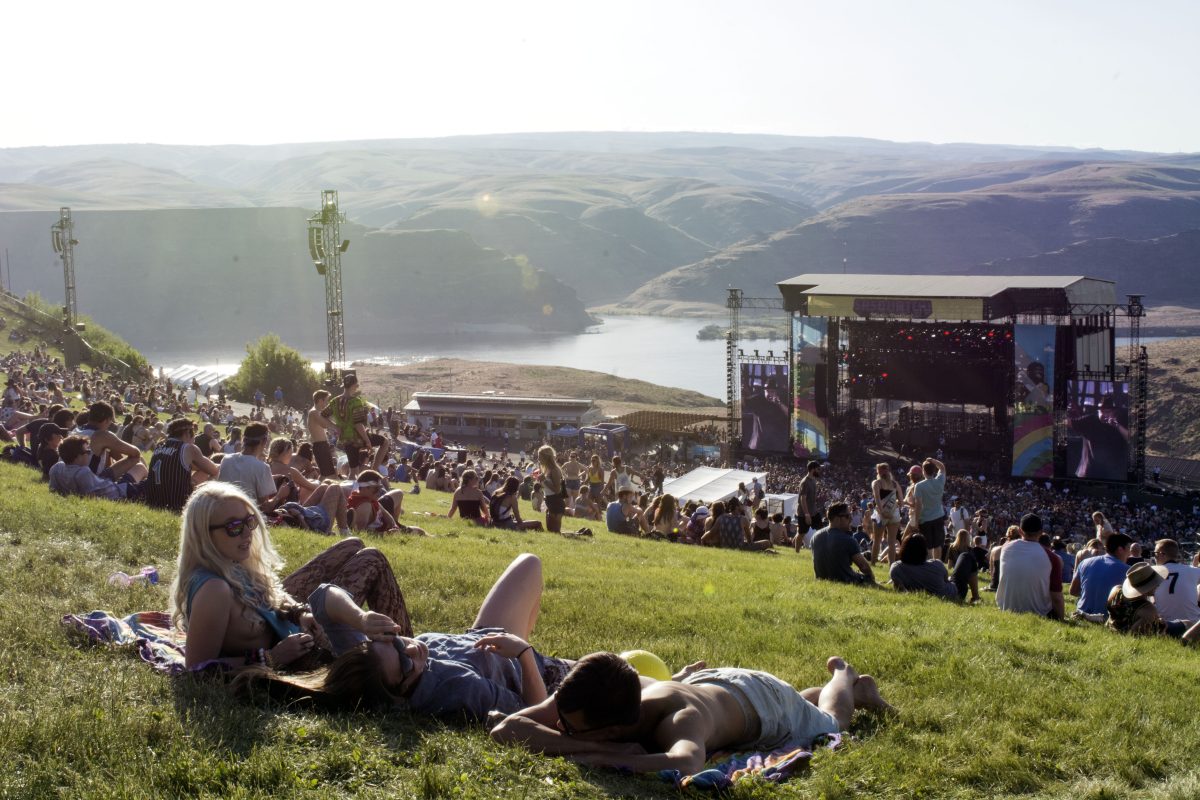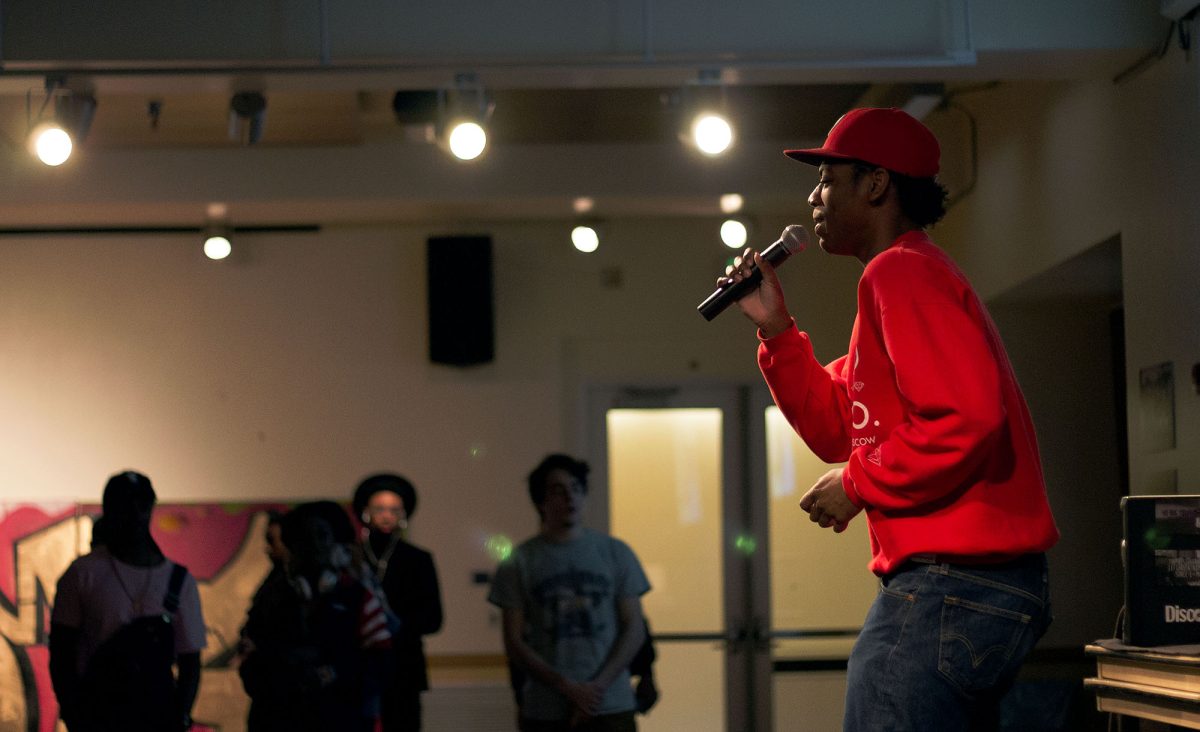Words and Photos by Junnelle Hogen
The train from King’s Cross Station in London jolted through the Lake District, separating England from Scotland, with old-school vicarages and stone relics peeping out from the vast array of fields. As flat farmlands turned into undulating hills and lakeside vistas, I was nodding off to The Temptations in my earbuds and the book Far from the Madding Crowd splayed face-down on my lap.
Soon I was far from England’s capital city, and a dotting of sea and tundra changed into the rough and rugged stone-sprinkled scenery of the Scottish countryside. The train, with a final jolt, stalled at the Waverley station, in the center of “Auld Reekie.”
It was August of 2015, too early for the term “Brexit” — the push for the United Kingdom to leave the larger European Union via a referendum — to gain large-scale relevance.
But another referendum had produced political discord, despite its 11 months of finality. The summer before my trip, Scots voted on whether to split from the UK. By a slim margin, they decided to stay a part of the UK, with a 55.3 percent versus 44.7 percent vote. The referendum garnered a turnout of 84.6% of the voting population, the largest showing in UK history since the vote for women’s suffrage.
My visit was 11 months after conservative Prime Minister David Cameron uttered the iconic words, “A question mark hangs over the United Kingdom,” begging Scotland to stay in a speech broadcast by the BBC.
“There will be no going back,” he said. “I believe passionately that it is in their best interests to stay in the United Kingdom. That way Scotland has the space to take decisions while still having the security of being part of something bigger.”
The die had been cast. That much was clear. But from my week talking to locals in the Scottish cities of Edinburgh, Inverness, and Glasgow, a much more nuanced picture emerged.
Still prevalent was a widespread separatist culture voicing a chagrin with political representation and a frustrated idealism of pro-regional policies. The decision had not destroyed that 44.7 percent separatist element represented in the referendum vote. It had merely temporarily quieted their political resilience. Also at war in unresolved domestic dialogues were the ruling faction — the anti-separatist vote, some motivated by the fear of the unknown, the history of UK unification, geographical land ties, and economic concerns.
Settling into a cold night at a renovated estate-turned-hostel in Glasgow, I chatted with a group of young women from the countryside. One of my newfound acquaintances recounted the historic tensions between Scotland and the UK, with Flora Mac-Ivor enthusiasm evocative of Waverly, mentioning the series of conflicts starting with the Wars of Independence to the rise of the Scottish National Party in the mid-1970s, to the 1997 devolution of UK-centric government, empowering the Scottish political process. Several listeners to our conversation seemed to have lost interest, voices muffled as “What Do You Mean?” blasted from a speaker crouched on a crumbling mold, panpipes and synths adding background discord, but she had my attention.
Our rendezvous in Glasgow was part of a larger national dialogue. In May 2016, a Scottish Social Attitudes survey found 42 percent of respondents wanted to leave the UK and 58 percent wanted to stay, despite First Minister Nicola Sturgeon’s announcement that she would push for independence in the next parliament.
But the fading voices of the lost cause echoed on my trip back to London. As a month passed, and the end of my stay veered into view, fragments of the “A question mark hangs over the United Kingdom” speech started to unify into active dialogue. This time more massive implications were at stake.
That’s when the Brexit emerged — a term piggybacking on the idea of “Grexit,” the discussion of Greece’s potential withdrawal from the Eurozone during financial difficulties.
Cameron first suggested the referendum in January of 2013, as part of his campaign promises if the Conservative Party should win another parliamentary majority in the May 2015 general election. The Conservatives did gain another majority, and with Cameron’s continuation as prime minister, he promised to hold the referendum by the end of 2017, despite French President François Hollande’s statements to the European Parliament saying there could be no “à la carte” option for EU membership.
By September of 2015, the referendum was not a certainty, as two pieces of legislation making the vote legal (which both had passed by January 2016) had yet to find approval. However, the dialogue surrounding the proposed exit was growing like a steady stream and popping up in the most unlikely places in London: “Brexit” graffiti lettering in Chinatown, pro-exit words hanging in the air of the Southwark commercial mainstream – all part of a steadily, slowly growing movement I only glimpsed as a frequenter of London culture.
By the time the last piece of legislation deciding the certainty of a referendum passed in January 2016, I was back in the United States, unable to witness the bubbling hiss of muffled expectations gush into a torrent.
Within two years, the UK had gone from considering a proposed Scottish secession to the even more dramatic step of considering a separation politically, economically, and socially from the European Union, a group of 28 mainly European nations representing over 508 million people, with an internal single market and subsidized passport requirements ensuring the free movement of people, goods, services, and capital.
Supporters of EU membership argued that doing away with EU affiliations could lead to economic implications without the free trade agreements encouraging business partnerships within EU countries and doing away with cross-border tariffs, as well as put in jeopardy the 3 million EU nationals who are living and working in Britain as part of the EU’s free movement of labor laws. In turn, separation supporters advocated that a shift could give the UK more control over immigration policy, keeping the pound instead of the euro, and a clear political power letting Britain run its own affairs without EU interference.
The questions and statements in the discussion, bubbling to fervor, have become eerily reminiscent of the Scottish referendum: cries for more representation and references to historical differences on one side, and concerns over generational consequences and economic repercussions on the other.
In May 2016, I reached out for perspective to one of my London contacts — Camilla Byk, a veteran of the BBC and co-founder of international podcasting site Podium.me, a media outlet voicing the perspectives of the “under 25s,” which occasionally partners with BBC Radio 1. With her podcasting platform, she oversees hundreds of young journalists and has an ear to the ground when it comes to the millennial voice in the UK.
During the Scottish referendum, Byk had three of her journalists produced podcasts on the dissension from both camps. Because the voting age was lowered to 16 for the Scottish referendum, she says her journalists found that millennials were paying attention to the outcome more than usual.
Her experiences gathering content on the Brexit vote were more reminiscent of an echo chamber – only one out of over 400 journalists even proposed to cover the story.
“The information today hasn’t been that clear or targeted for the younger age group,” Byk comments.
What she says she has found prevalent is an ingrained sense of separatism within the UK from the EU.
“Ever since the EU was created as an entity, people have just had a different attitude towards it,” Byk says. “The fact that we’re not keen to join the euro. The fact that sadly with the majority of people in the UK, learning a second language isn’t a huge priority, because English is a main language that you can use all over the world. There’s a slight sense of ‘What is there in it for me?’”
Byk mentions that this time, she has been noticing political interest from the Scottish youth with a slightly different twist that the Scottish referendum. While Scottish millennials were more likely to vote in favor of separating from the UK in the Scottish referendum, recent polls have been showing a desire in the same age demographic to stay within the EU for the Brexit vote.
In March 2016, a YouGov poll of more than 16,000 Great Britain adults showed that Scottish voters are more likely to vote to stay in the EU, with 63 percent of the Scots surveyed wanting to stay and 37 percent wanting to leave.
Here in Oregon, Damian Radcliffe, a professor at the University of Oregon and British citizen, shared his viewpoint. As we discussed the implications of Brexit, Radcliffe leaned back in his desk chair, furrowing his brow at the unknown possibilities of leaving the EU.
“I think if you do get the British exit than it is going to make it very difficult to maintain the United Kingdom as a single entity,” Radcliffe says. “They talked about the Scottish referendum being a once in a generational thing, but if Britain exits and Scotland voted to stay in, what does that mean for the union? That makes it very, very difficult.”
Radcliffe pinpointed similarities between the Scottish referendum and Brexit: An idealistic draw to independence. Deep-rooted dissatisfaction with political and economic representation. Geographical separations.
“It is an ideological, pathological dislike and distrust of Europe,” Radcliffe says.
Radcliffe compared the position advanced by Prime Minister David Cameron to the fine line balanced by 1990s UK Prime Minister John Major, who juggled an anti-European group with a small majority, in a political tightrope between over pacification and a vote of no confidence.
“The conservative party has had tensions for the last 25 years and longer where there’s been a lot of unease about the relationship with Europe,” Radcliffe says. “That has threatened to blow apart the party for a very long time, and now with the referendum next month, you really are at the precipice.”
“I think the EU referendum could be very, very close,” Radcliffe says. “A lot of people are instinctively anti-Europe without being able to explain and pinpoint why.”
Whether or not the vote, set for June 23, is a precipice remains to be seen. Meanwhile, as the layers unfold and the Brexit vote draws near, I can’t help but think of the music that ushered me into the harsh Scottish terrain in 2015 – The Temptations’ “Ball of Confusion.”
“Segregation, determination, demonstration, integration / Aggravation, humiliation, obligation to our nation / Ball of confusion / Oh yeah, that’s what the world is today.”
As I listened, the independent tundra of Edinburgh came into focus, like a panned camera. The Sir Walter Scott monument, the largest monument dedicated to a writer in the world, stood out as a towering reminder of this stolid nation’s history.
It remained unmoved in the wind and summertime cold, where the ideas of the romanticized dead and the living seemed to mix in an almost palpable way. Flickering lights shone from Edinburgh Castle, perched on Castle Rock, which had withstood so many attacks during the Jacobite Rising.
I recalled the words of Scott, who touted Scottish independence in his works. He once said: “Where is the coward that would not dare to fight for such a land as Scotland?”
Now the fight is no longer with weapons, but words. However, as first Scotland, and now the UK, battles the instinct of separatism with the stability of unification, it is only fitting that the old Temptations number characterizes my journey.
A ball of confusion indeed.
Categories:
Separation Anxiety: A Personal Journey Through the UK’s Independence Crisis
Junnelle Hogen
June 4, 2016
0
Donate to Ethos
Your donation will support the student journalists of University of Oregon - Ethos. Your contribution will allow us to purchase equipment and cover our annual website hosting costs.
More to Discover


